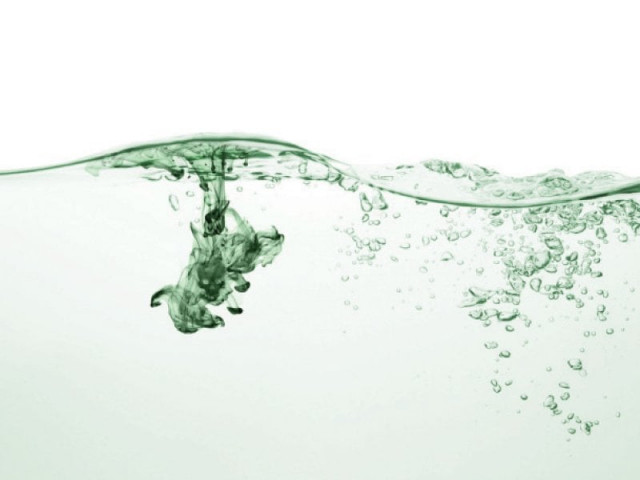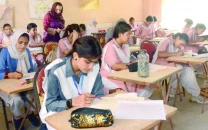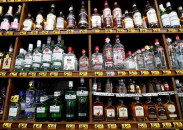Leaks in the system: Wasa verifying data of survey
Data collected about agency’s consumers would help revise charges, determine non-residential users.

The WASA managing director said a water supply project had been completed in the western part of the city with financial assistance from the French government. PHOTO: FILE
According to a senior Wasa official, it would take around seven to 10 days to verify data of consumers who are using water supplied by the agency.
Wasa had conducted a consumer survey in January, setting up 47 teams of the authority’s staff which went door-to-door to collect the data.
The agency had also deputed 24 employees to enter the data collected by Wasa teams into the system, working 24 hours in two, 12-hour shifts.
Now, official said, the agency had hired a third party to re-validate the data collected by Wasa employees. In this regard, verification teams have been visiting different areas to determine whether the data collected was accurate or not.
The entire process, the official said, was expected to be completed ‘within days’.
Explaining the method adopted by the agency, the official said that Wasa had carried out a similar survey in 2008 covering 46 union councils of Rawal Town. According to that survey, Wasa had 125,000 total consumers of which 18,000 were commercial users.
He noted that last year Wasa had hired a private company to carry out consumer surveys of two specific union councils under a pilot project. The firm, however, could not complete the project despite working on it for 10 months.
The delay forced the agency to depute its own staff for the survey.
The official added that the survey was necessary to determine the extent of its consumer base and their consumption. He added that Wasa bills a house measuring five marlas Rs98 every month for consuming water.
However, in the latest survey, the agency included all houses to which Wasa provides water supply and sanitation services.
When contacted, Wasa Managing Director Raja Shaukat Mahmood confirmed the verification system, adding that it was expected to be completed soon.
He added that verified data would help increase the revenue the agency was generating by revising water charges which had not changed since 2009, just after the last full survey.
Highlighting that the survey would help discourage water theft, Mahmood said the survey had helped the agency in identifying illegal water connections.
Noting that the survey had collected data about how many people were living in houses of different sizes, it had helped in checking the nature of water consumers, whether they were residential or commercial.
Mahmood said that in addition to determining the nature of their consumers, the data would help Wasa in determining how much water does the city require and the agency would thus try and maintain supply accordingly.
He added that the data would also help in revising the water charges that had been stagnant since 2009.
Published in The Express Tribune, February 17th, 2017.



















COMMENTS
Comments are moderated and generally will be posted if they are on-topic and not abusive.
For more information, please see our Comments FAQ